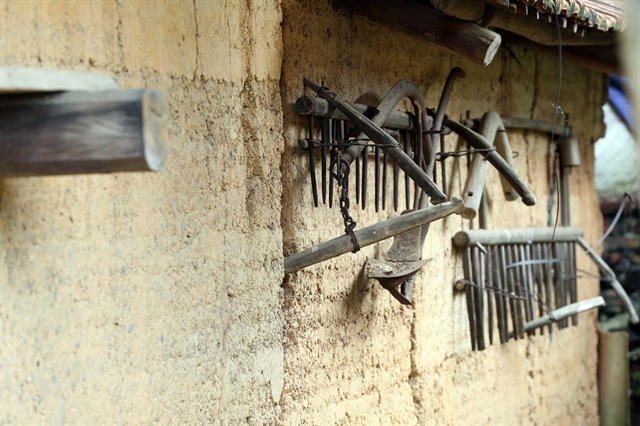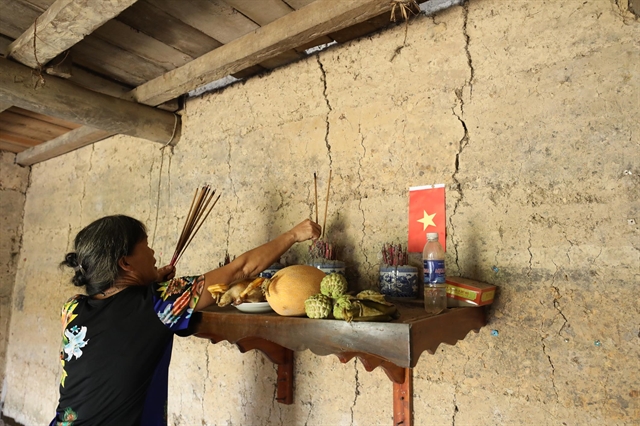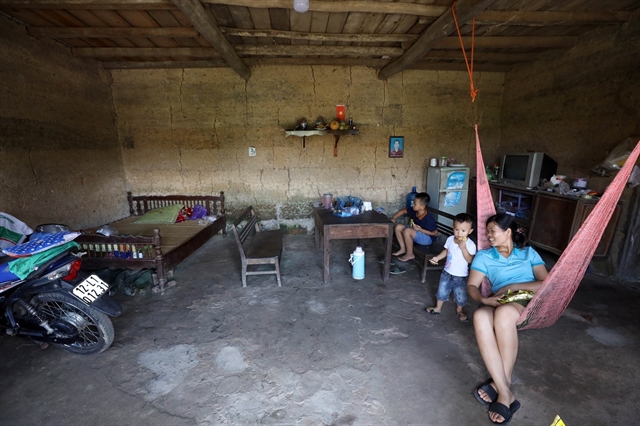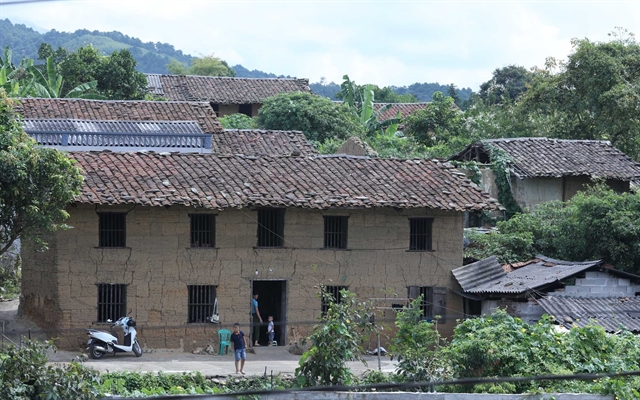For generations, ethnic communities in the northern province of Lạng Sơn like Tày, Nùng, Dao or Sán Chí have taken shelter in trình tường (earthen) houses.

A trình tường house and kitchen made of clay in Khiếng Village. — VNA/VNS Photo Anh Tuấn
These unique houses are made completely of clay but they are very solid and firm. Some of them have existed for decades.
A trình tường house usually has two floors with three rooms, and two outhouses used as storage and a kitchen. The altar is placed in the middle of the house. Behind the altar is the room for the elderly. There is a yard for drying paddy, rice, and maize and even clothes in front of the house.

Farming tools are hung on the walls outside a trình tường house in Khiếng Village. — VNA/VNS Photo Anh Tuấn
As they are made of clay, this kind of house is sustainable, economical, warm in winter, and cool in summer. They are resistant to the wind and heat.
It is estimated that Lạng Sơn Province now has around 1,000 earthen houses, most of which are located in border districts like Đình Lập, Văn Lãng and Tràng Định.

The altar is placed in the middle of the house. — VNA/VNS Photo Anh Tuấn
As the living standards of the villagers have been improved in recent years, more concrete and brick houses have been built, replacing ancient earthen houses.
According to Nông Hữu Tuấn, head of Khiếng Village in Hữu Khánh Commune, the village is home to 170 households, most of whom are Tày and Nùng ethnic people. However, just 30 per cent of the local households still owns earthen houses that have been passed down from their ancestors.

Just 30 per cent of Khiếng Villagers are still living in the earthen houses that have been passed down from their ancestors. — VNA/VNS Photo Anh Tuấn
In recent years, the local authorities have taken various measures to save trình tường houses, which have been closely associated with the culture of local communities, from the risk of disappearing.
“Lạng Sơn Provincial Department of Culture, Sports and Tourism cooperated with district authorities to build plans on preserving the cultural heritage, the major point of which is improving locals’ awareness on preserving trình tường houses,” said Nguyễn Phúc Hà, director of the department.
“At the same time, the model of community-based tourism in the villages where many earthen houses are being preserved will continue to be studied and multiplied on a larger scale, in an effort to combine tourism with preservation,” he added. — VNS

A two-storey trình tường house that is nearly 100-years-old in Khiếng Village. — VNA/VNS Photo Anh Tuấn
OVietnam